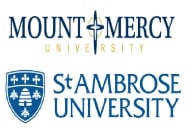You have /5 articles left.
Sign up for a free account or log in.
One of the more controversial campus speeches of the last academic year was discussed not so much for its content as for its repeated interruption. On Monday, the debates started again -- with the news that University of California at Irvine was moving to suspend the Muslim Student Union on the campus for a year as punishment for organizing heckling during a speech by Israel's ambassador to the United States.
It is unusual for public universities to suspend political or religious groups -- and the Muslim student group at Irvine promptly announced an appeal, claiming First Amendment rights were at risk. But the university investigation determined that the repeated interruptions not only violated Irvine's rules about acceptable protest, but were organized by the group. And the proposed punishment at Irvine, like the original incident, had all sides citing freedom of expression to justify their views.
Michael Oren, Israel's ambassador, spoke at Irvine in February. Appearances by Israeli officials regularly draw protests or spur campus debates, but what happened at Irvine went beyond pickets outside. Every few minutes during his talk a student would get up, shout something critical of Israel, be applauded by some in the audience, and be led away by police. (Video of the event, distributed by a pro-Israel group, can be found here.) Irvine officials asked those in the audience -- both before Oren spoke and after the interruptions started -- to let him speak. And the university condemned the heckling and started an investigation. The debate grew when some supporters of the Palestinian cause suggested that the heckling should be viewed as a legitimate form of free expression.
Irvine's investigative report -- released in redacted form Monday -- reviews what happened at the speech, and also how the protests were planned.
Based on e-mail records and student testimony, the investigation found that the Muslim group organized a meeting to plan the interruptions, voted on the plan, distributed statements for protesters to read when shouting at the ambassador, and had plans in place for a variety of contingencies. The disruptions were "planned, orchestrated, and coordinated in advance" by the Muslim Student Union, the investigation found. Part of the plan, the university found, was for the members of the Muslim student union to tell anyone who asked that the event had not been coordinated by the group.
As a result, the university inquiry found the student group guilty of "obstruction" of university activities and of "dishonesty" in providing false information about what happened. The inquiry recommends that the group be suspended from being recognized for one year and that its members be required to perform community service.
The punishment will not be imposed until after an appeals process. If the sanctions stand, losing recognition means that the Muslim group cannot receive student fees or reserve student facilities. However, members of the group would be allowed to assemble and speak out.
Jewish leaders, who have criticized Irvine in the past, praised the university for upholding the right of an Israeli speaker to be heard. One recent graduate of Irvine was quoted on the Orange County Jewish Federation's Web site as saying: "These results serve as a reminder that the First Amendment is a non-negotiable American value. The MSU must understand that they do not have the authority to control what students can and cannot hear on campus."
The Muslim Student Union issued a statement in which it reiterated its denials that it had organized the protests. "The students acted in their personal capacity," said the statement. The student union's incoming president, Asaad Traina, said: "Suspending the MSU would undoubtedly create a chilling effect and deprive Muslim students -- both current and incoming -- of a place where they can develop a sense of community with one another and with the broader UCI campus community. Depriving Muslim students a venue to associate jeopardizes their rights under the First Amendment and is an act of marginalization at a time when Muslim students and Muslim youth already feel besieged."
Adam Kissel of the Foundation for Individual Rights in Education said that he backed Irvine's stance. "Repeatedly disrupting a speech on campus, no matter how controversial the speaker, can only harm the efforts of a college to be a true market place of ideas," he said. "If UCI has conducted a fair and careful investigation, those who attempted to silence Ambassador Oren should face discipline for their actions."
John K. Wilson, whose blog College Freedom takes a strong free speech position, said he was opposed to collective punishment of student groups. "It's possible that there were innocent members of this group who will now suffer despite not being involved," he said. He said he could, however, see appropriate punishment being legitimate for the individuals who interrupted the talk. "It was a serious, multiple disruption of a speaker that certainly deserves condemnation and is subject to punishment," he said.








